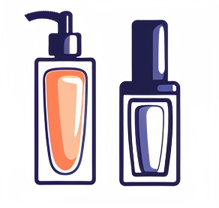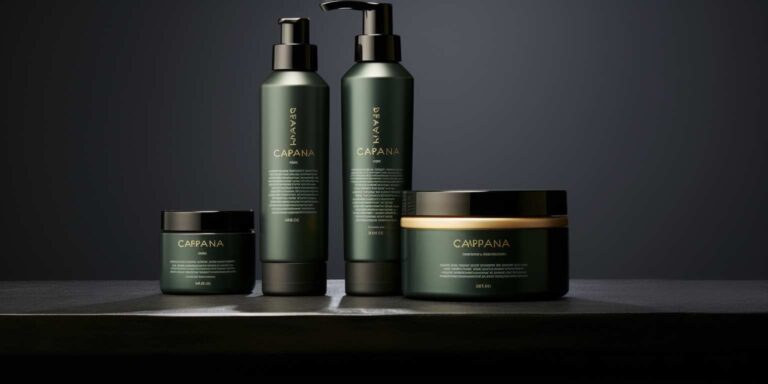The ultimate guide to the best shampoo for hair fall
Hair fall can be caused by various factors, including genetics, hormonal changes, stress, and scalp conditions. While no shampoo can completely prevent hair fall, using the right products can help minimize it and promote healthier hair growth.
One crucial factor to consider is the ingredients in the shampoo. Look for shampoos containing biotin, niacinamide, caffeine, and arginine, which are known for their ability to strengthen hair follicles and promote hair growth. Additionally, essential oils such as rosemary, peppermint, and lavender can help improve scalp health and stimulate hair growth.
Another important consideration is to avoid shampoos containing harsh chemicals such as sulfates, parabens, and silicones, as these can strip the hair of its natural oils and cause further damage, leading to increased hair fall.
For those with dry or damaged hair, look for shampoos with moisturizing ingredients like glycerin, panthenol, and coconut oil. These ingredients help hydrate the hair and prevent breakage, reducing hair fall in the long run.
If you have oily scalp and are prone to hair fall, opt for clarifying shampoos that effectively remove excess oil and buildup without stripping the scalp. Ingredients like tea tree oil and salicylic acid can help regulate oil production and keep the scalp healthy.
Below is a table summarizing some of the best shampoos for hair fall, categorized based on different hair types and concerns:
| Shampoo | Key Ingredients | Benefits |
|---|---|---|
| 1. Nourishing Biotin Shampoo | Biotin, Argan Oil | Strengthens hair, promotes growth |
| 2. Revitalizing Caffeine Shampoo | Caffeine, Rosemary Oil | Stimulates follicles, improves scalp health |
| 3. Moisturizing Coconut Oil Shampoo | Coconut Oil, Vitamin E | Hydrates dry hair, reduces breakage |
| 4. Clarifying Tea Tree Shampoo | Tea Tree Oil, Peppermint | Regulates oil production, removes buildup |
Remember to follow up with a conditioner suitable for your hair type to lock in moisture and further protect against hair fall. Additionally, avoid excessive heat styling and harsh brushing to minimize damage to the hair.
Choosing the right hair loss shampoo
When it comes to combating hair loss, choosing the right hair loss shampoo can be a game-changer. The market is flooded with a plethora of options, each claiming to be the ultimate solution for thinning hair. However, not all shampoos are created equal, and finding the one that suits your specific needs requires a bit of insight.
First and foremost, identify the cause of your hair loss. Is it due to genetics, hormonal changes, or external factors? Different shampoos target different issues, so understanding the root cause is crucial. For genetic hair loss, look for shampoos containing ingredients like minoxidil or finasteride. These substances are known to promote hair regrowth and prevent further loss.
If hormonal imbalances are the culprit, opt for shampoos with key ingredients such as ketoconazole or saw palmetto. These components help regulate hormone levels and inhibit the production of dihydrotestosterone (DHT), a hormone linked to hair loss.
For those facing hair loss due to external factors like stress or poor nutrition, focus on shampoos enriched with vitamins and minerals. Ingredients like biotin, niacin, and panthenol can strengthen hair and promote a healthier scalp environment.
Understand your hair type before making a selection. Different shampoos cater to specific hair textures, whether it’s oily, dry, curly, or straight. Read the labels carefully, as using the wrong type of shampoo can worsen your hair condition.
Don’t be swayed solely by flashy advertisements or celebrity endorsements. Research the ingredients in each shampoo to ensure they align with your goals. Avoid products with harsh chemicals like sulfates, parabens, and synthetic fragrances, as these can contribute to hair damage.
Consider user reviews as valuable insights. Look for testimonials from individuals with similar hair concerns. This can give you a realistic expectation of a product’s effectiveness. Additionally, check for any potential side effects or allergic reactions mentioned by users.
When in doubt, consult with a dermatologist or trichologist for personalized advice. They can assess your specific condition and recommend a shampoo tailored to your needs. It’s essential to treat hair loss as a multifaceted issue, combining the right shampoo with lifestyle changes and, if necessary, medical interventions.
How hair root strengthening treatment works
Hair root strengthening treatment is a comprehensive approach to fortify hair from its roots, addressing issues ranging from hair loss to lackluster growth. Understanding how this treatment works can demystify its efficacy and appeal.
The Process:
| Step | Description |
| 1 | Assessment: A thorough analysis of the scalp and hair condition is conducted to tailor the treatment. |
| 2 | Cleansing: The scalp is cleansed to remove impurities and excess oils, ensuring optimal absorption of treatment products. |
| 3 | Treatment Application: Specialized formulations rich in vitamins, minerals, and nutrients are applied directly to the roots. |
| 4 | Massage: Gentle massage techniques stimulate blood circulation, promoting nutrient delivery to the follicles. |
| 5 | Strengthening Mask: A strengthening mask is applied to nourish and fortify the roots, enhancing their resilience. |
| 6 | Heat Therapy: Heat application aids in deep penetration of nutrients, maximizing their effectiveness. |
| 7 | Rinse and Seal: The treatment is rinsed off, followed by the application of a sealing serum to lock in moisture and nutrients. |
Key Ingredients:
- Biotin: Strengthens hair strands and promotes growth.
- Caffeine: Stimulates hair follicles, encouraging growth.
- Keratin: Repairs damage and improves hair texture.
- Peptides: Boost collagen production, enhancing hair thickness.
Benefits:
- Prevents Hair Loss: By nourishing and strengthening the roots, this treatment minimizes hair shedding.
- Promotes Growth: Stimulating the follicles enhances hair growth, leading to thicker and fuller hair.
- Improves Hair Quality: Repairing damage and improving texture results in softer, smoother hair.
- Enhances Scalp Health: Cleansing and nourishing the scalp contribute to overall scalp health, reducing issues like dandruff and itchiness.
Ingredients to look for in a hair fall shampoo
When it comes to battling hair fall, choosing the right shampoo can make a world of difference. While many products claim to be effective, it’s crucial to know which ingredients actually deliver on their promises. Here’s a guide to the key components you should look for in a hair fall shampoo:
| Ingredient | Benefits |
|---|---|
| Biotin | Known as vitamin B7, biotin strengthens the hair follicles, promoting healthier and thicker hair growth. |
| Caffeine | Caffeine stimulates blood circulation to the scalp, which can help prevent hair loss and encourage new hair growth. |
| Keratin | Keratin is a protein that forms the structure of the hair. Shampoos containing keratin can help strengthen and repair damaged hair. |
| Saw Palmetto | Saw palmetto blocks the production of DHT, a hormone that contributes to hair loss, making it an effective ingredient in hair fall shampoos. |
| Niacin | Niacin, also known as vitamin B3, helps improve blood circulation to the scalp, promoting healthier hair growth. |
In addition to these key ingredients, it’s also important to look for shampoos that are free from harsh chemicals such as sulfates and parabens, which can strip the hair of its natural oils and contribute to hair fall. Instead, opt for gentle formulas that nourish and strengthen the hair without causing damage.
The science behind hair fall shampoos
The Science Behind Hair Fall Shampoos
Understanding the science behind hair fall shampoos can shed light on how these products work to address the common concern of hair loss. While many factors contribute to hair fall, including genetics, stress, diet, and hormonal changes, certain shampoos are formulated to target specific causes or symptoms.
Key Ingredients
| Ingredient | Function |
| Biotin | Helps strengthen hair follicles and promote hair growth. |
| Ketoconazole | Antifungal properties that may reduce scalp inflammation and prevent fungal infections, which can contribute to hair loss. |
| Caffeine | Stimulates hair follicles and may prolong the anagen phase of the hair growth cycle. |
These are just a few examples of ingredients commonly found in hair fall shampoos and their respective functions.
Mechanism of Action
Most hair fall shampoos work by targeting the root cause of hair loss or by improving the overall health of the scalp and hair follicles. For example, shampoos containing ketoconazole may help reduce inflammation and fight fungal infections on the scalp, while those with biotin can strengthen hair strands and prevent breakage.
Usage Recommendations
- Frequency: Hair fall shampoos are typically used 2-3 times per week, although frequency may vary depending on the product and individual needs.
- Application: Apply the shampoo to wet hair, massage into the scalp, and leave on for a few minutes before rinsing thoroughly.
- Consistency: Results may take time to become noticeable, so it’s important to use the shampoo consistently over several weeks or months for the best outcome.
Potential Side Effects
While hair fall shampoos are generally safe for most people, some individuals may experience mild side effects such as scalp irritation or dryness. It’s essential to discontinue use if any adverse reactions occur and consult a dermatologist if symptoms persist.
Preventing hair fall with lifestyle changes
Hair fall can be a distressing concern, but with the right lifestyle changes, you can effectively prevent and mitigate the issue. Adopting a holistic approach to hair care involves addressing various aspects of your daily routine.
Diet: Start by ensuring your diet is rich in nutrients essential for hair health. Include foods high in vitamins A, C, E, and B-complex as well as iron, zinc, and omega-3 fatty acids. These nutrients play a crucial role in promoting hair growth and preventing hair fall. Maintain a well-balanced diet that nourishes your body from within.
Hydration: Dehydration can contribute to hair fall. Drinking an adequate amount of water helps in keeping your hair and scalp hydrated. Proper hydration supports overall health, ensuring that your hair follicles receive the necessary moisture to thrive.
Stress Management: Chronic stress is a significant contributor to hair fall. Practice stress-reducing activities such as meditation, yoga, or deep breathing exercises. Managing stress not only benefits your mental well-being but also positively impacts the health of your hair.
Hair Care Routine: Adopt a gentle hair care routine to prevent unnecessary damage. Use a mild shampoo and conditioner suitable for your hair type. Avoid excessive heat styling, as it can weaken hair strands. Additionally, be mindful of tight hairstyles that pull on the hair, causing breakage.
Scalp Health: A healthy scalp is crucial for preventing hair fall. Regularly massage your scalp to improve blood circulation, promoting hair growth. Choose a shampoo that maintains the natural balance of your scalp and avoids harsh chemicals that could lead to irritation.
Regular Exercise: Engaging in regular physical activity not only benefits your overall health but also stimulates blood flow to the scalp. Improved blood circulation ensures that hair follicles receive essential nutrients, promoting hair strength and growth.
Sleep Quality: Inadequate sleep can contribute to hair fall. Ensure you get enough quality sleep each night to allow your body to repair and regenerate. Sleep is a crucial time for hair follicles to undergo the growth phase, and a lack of sleep can disrupt this process.
Avoiding Harmful Habits: Certain habits can contribute to hair fall. Smoking and excessive alcohol consumption can negatively impact hair health. Quitting or moderating these habits can have positive effects on your overall well-being, including the health of your hair.
Supplements: If needed, consider incorporating hair health supplements into your routine. Consult with a healthcare professional to identify any deficiencies and determine the right supplements for you.
The role of diet in strengthening hair roots
The role of diet in strengthening hair roots
Many people desire strong, luscious hair, but achieving this goes beyond just using the right shampoo or conditioner. The health of your hair is intricately linked to your dietary choices. By nourishing your body with the right nutrients, you can strengthen your hair roots and promote overall hair health.
One of the key nutrients essential for healthy hair roots is protein. Hair is primarily made up of protein, specifically a protein called keratin. Ensuring an adequate intake of protein in your diet can support hair growth and strengthen the roots from which hair grows.
Additionally, iron plays a crucial role in maintaining healthy hair follicles. Iron deficiency can lead to hair loss and weakened hair roots. Including iron-rich foods such as lean meats, beans, and leafy green vegetables in your diet can help sustain strong hair roots.
Omega-3 fatty acids are another essential nutrient that contribute to healthy hair. These fatty acids help hydrate the scalp and prevent dry, brittle hair. Sources of omega-3s include fatty fish like salmon, flaxseeds, and walnuts.
Vitamins and minerals also play a significant role in hair root strength. Vitamin E acts as an antioxidant, protecting hair follicles from damage. Foods rich in vitamin E include almonds, spinach, and avocados. Vitamin C aids in collagen production, which is essential for hair structure. Citrus fruits, strawberries, and bell peppers are excellent sources of vitamin C.
| Nutrient | Food Sources |
|---|---|
| Protein | Chicken, eggs, lentils |
| Iron | Red meat, spinach, lentils |
| Omega-3 fatty acids | Salmon, flaxseeds, walnuts |
| Vitamin E | Almonds, spinach, avocados |
| Vitamin C | Citrus fruits, strawberries, bell peppers |
Furthermore, hydration is vital for maintaining healthy hair roots. Drinking enough water ensures that hair follicles receive adequate moisture, promoting hair strength and elasticity.







